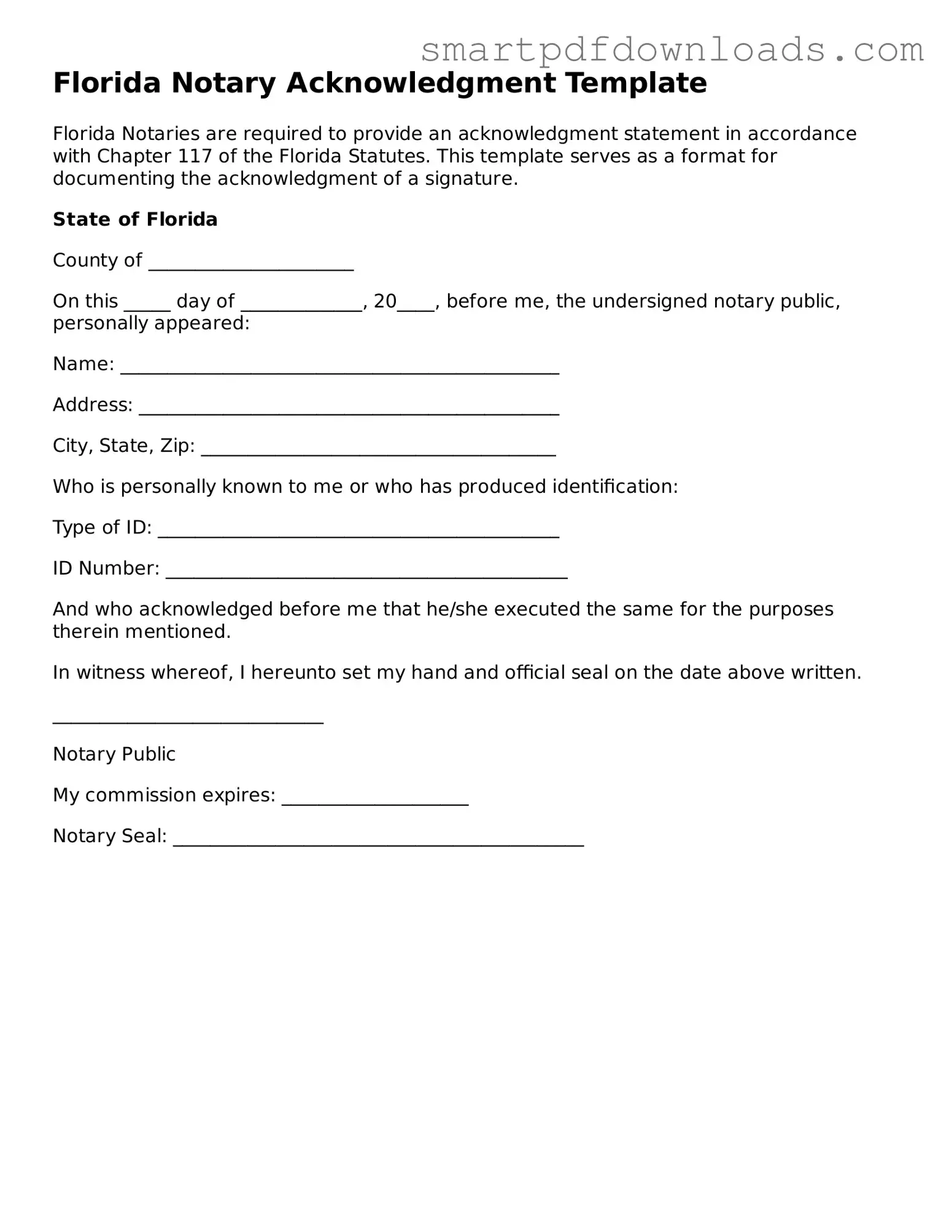Legal Notary Acknowledgement Form for the State of Florida
The Florida Notary Acknowledgement form is a legal document used to confirm that a signature on a document is genuine. This form is essential in many transactions, providing assurance to all parties involved. Understanding how to properly complete this form can help ensure that your documents are valid and enforceable.
Edit Notary Acknowledgement Online

Legal Notary Acknowledgement Form for the State of Florida
Edit Notary Acknowledgement Online

Edit Notary Acknowledgement Online
or
⇓ PDF File
Finish the form and move on
Edit Notary Acknowledgement online fast, without printing.